Resilience Hub at  2025
2025
Resilience Hub at Climate Week NYC 2025
Confronting the Resilience Elephant: From Science to Solutions
A high-impact that explored what is needed—and what is being avoided—to unlock truly transformative action
Triangle Loft, 675 Hudson Street, NYC
Monday, September 22nd 2025
Building on the momentum from London Climate Action Week, this Resilience Hub event at Climate Week NYC 2025 deepened the journey from science to strategy, with a particular focus on the transformative role that targeted, patient and community-informed financial investments could play.
At a pivotal moment on the road to COP30, we convened a high-level community of decision-makers, business leaders, resilience experts and practitioners to align on actionable priorities for adaptation and resilience. Together, we interrogated the systems we work within and shaped how the Road to Action can help shift them.
This event took place on Monday 22 September 2025 at Triangle Loft in Manhattan.
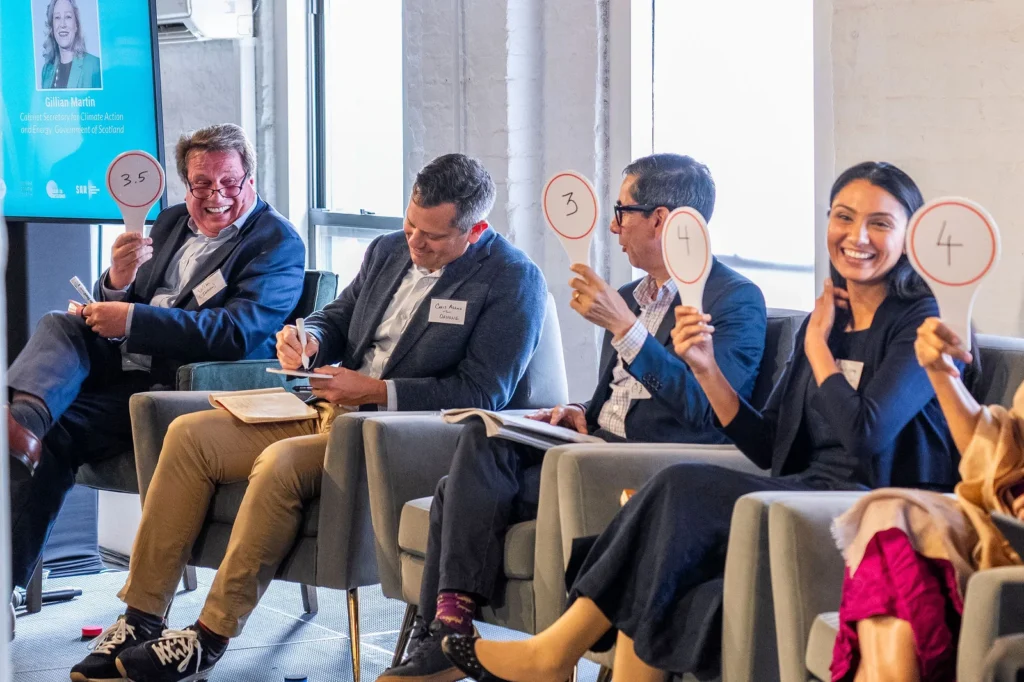
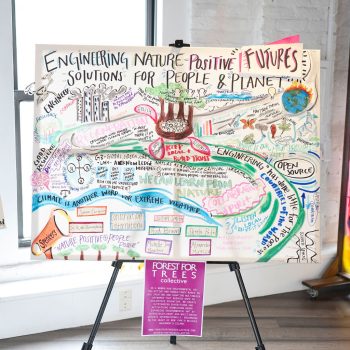
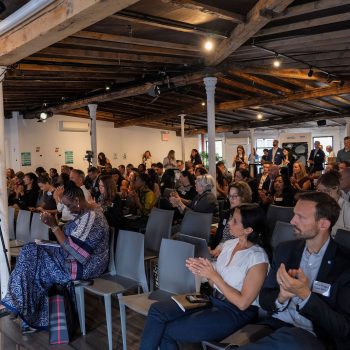
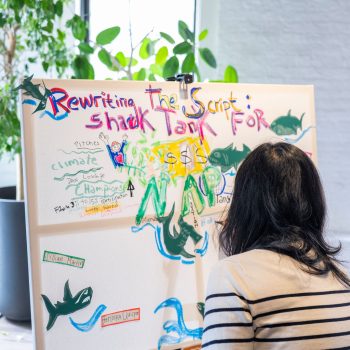
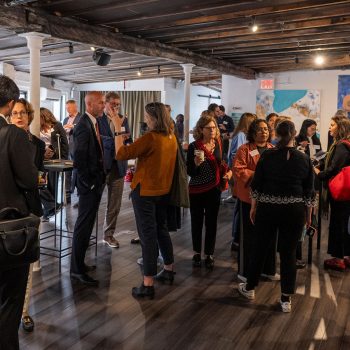
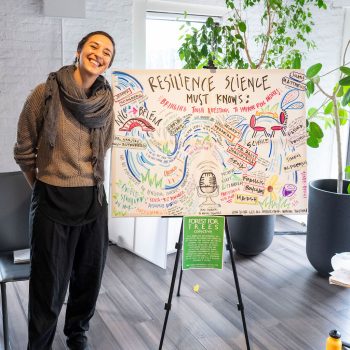
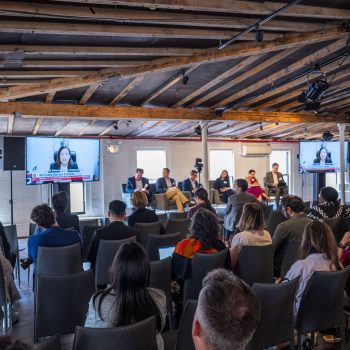
Recordings
Overview of the day
Arrival, tea and coffee
Resilience Science Must-Knows: Tough questions, real answers
Break mingle over tea and coffee
Engineering nature-positive futures: Solutions for people & planet
Networking lunch
Rewriting the script: Shark tank for investible NAPs
Break mingle over tea and coffee
From risk to remedy: Making health central to adaptation and COP30
Arrival, tea and coffee
Resilience Science Must-Knows: Tough questions, real answers
Session Overview
As climate shocks intensify, the critical question is no longer whether resilience strategies exist, but whether they can withstand pressure, deliver over time, and serve those most at risk. This flagship session shifts from broad principles to practical interrogation, asking how current approaches measure up when tested against evidence, equity, and long-term uncertainty.
Building on momentum from London Climate Action Week, where the Resilience Science Must-Knows were first introduced, this Climate Week NYC session takes the next step—stress-testing real-world approaches. Through a mix of expert provocations and practical interrogation, participants will explore how science can inform action and finance solutions that last. In this session, we will be putting real-world strategies under the microscope in shark-tank style and hands-on “resilience help-line”. The discussion will contribute directly to COP30 in Belém, aligning with the Presidency’s Granary of Solutions and the broader global resilience agenda.
Session hosts

Speakers
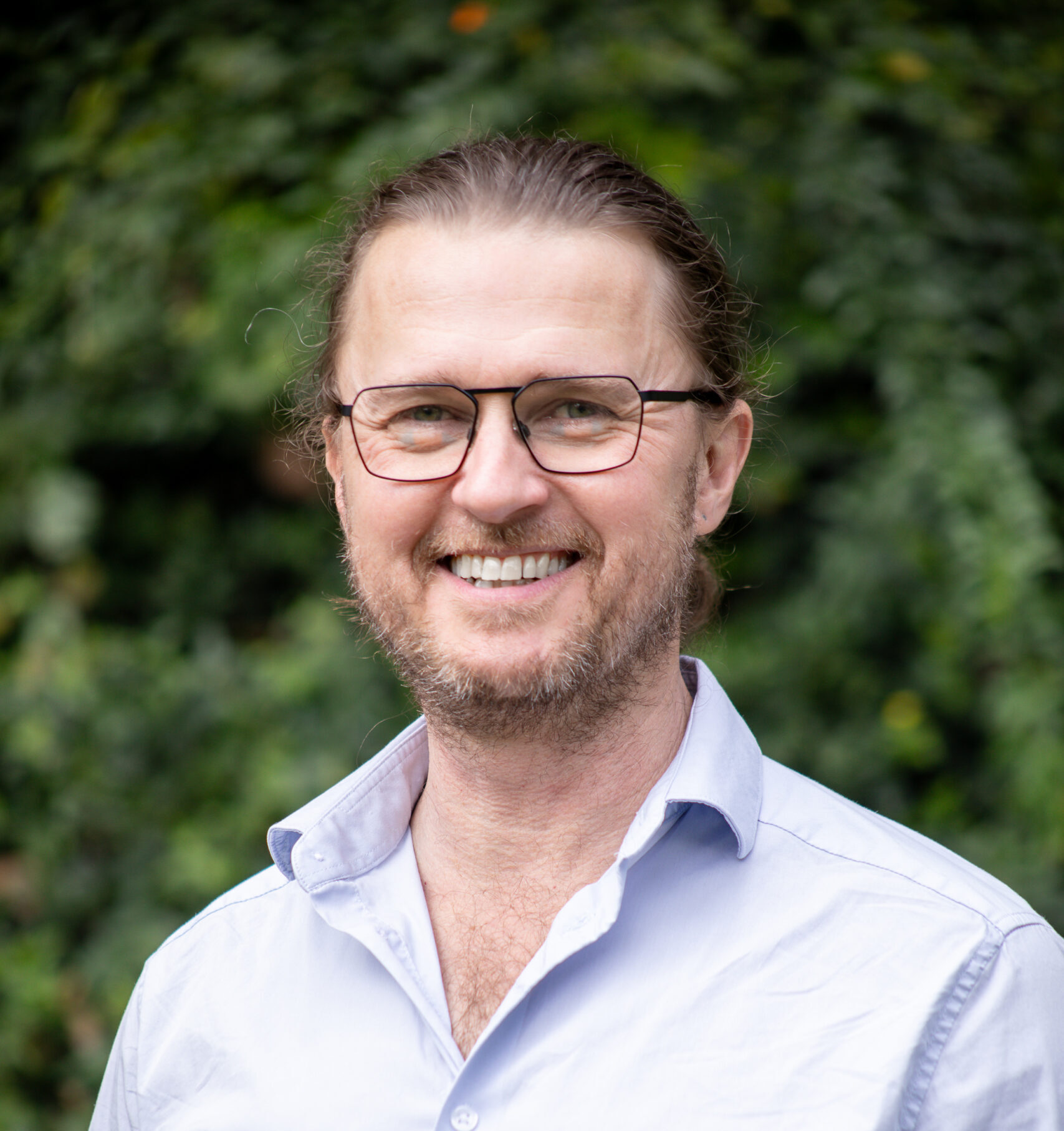
Jesper Hornberg
CEO, Global Resilience Partnership
Jesper is the Chief Executive Officer at the Global Resilience Partnership. For the past ten years he has led GRP’s Innovation and Scaling efforts, as well as the GRP Incubator. His focus is on change management and creative disruption. He manages and coordinates the GRP team, and provides overall oversight and leadership for GRP.

Dr. Wanjiru Kamau-Rutenberg
Africa Managing Director, Alliance of Bioversity International and CIAT
Dr. Wanjiru Kamau-Rutenberg is a distinguished leader in the fields of food systems and social inclusion, bringing a wealth of experience and expertise to her current role as Managing Director for Africa at the Alliance of Bioversity International and CIAT and as Trustee in the Board of Bioversity UK/USA. Dr. Kamau-Rutenberg’s career reflects a profound commitment to inclusive, agriculture-driven prosperity and gender-responsive agricultural research and innovation evidenced in her service as Director of African Women in Agricultural Research and Development (AWARD).
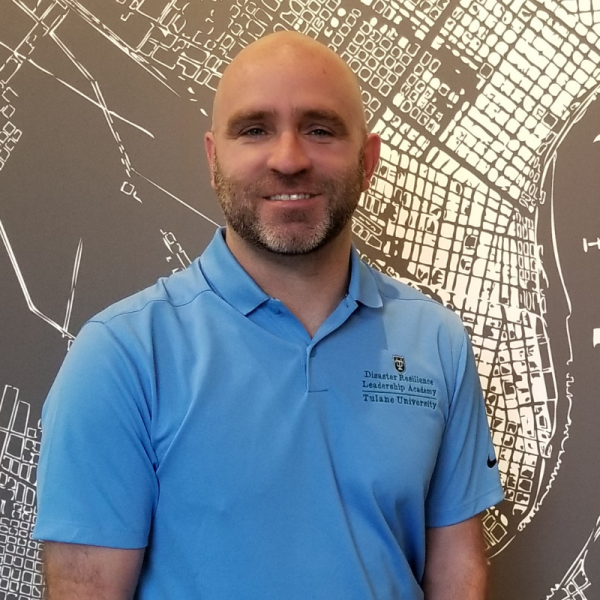
Regardt Ferreira
Disaster Resilience Leadership Academy, Tulane University
“Reggie” is Director of Tulane University’s Disaster Resilience Leadership Academy and Executive Director of the Consortium for Emergent Disaster Resilience. He is also a full professor (tenured) of social work at Tulane University in New Orleans, Louisiana. Since joining Tulane University’s faculty in 2013, his responsibilities have spanned administration, research, program development, and teaching.
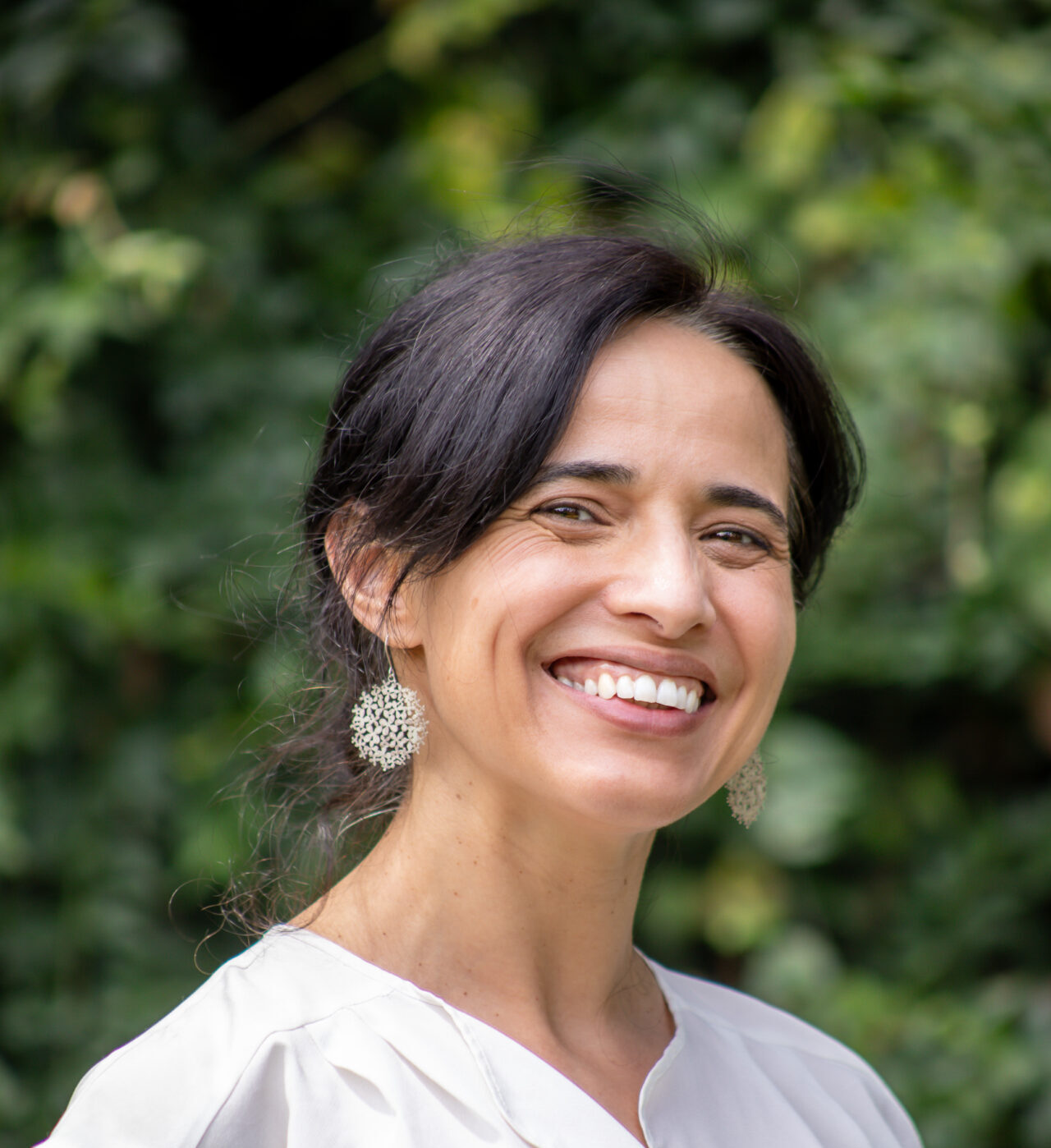
Cibele Queiroz
Knowledge Director, Global Resilience Partnership & Theme Leader, Stockholm Resilience Centre
Cibele leads GRPs work to advance the understanding and knowledge about resilience. Her work has a main focus on resilience of food systems and local livelihoods in food production landscapes. Her work has also a strong emphasis on the management of ecosystem services and biodiversity under social-environmental change.

John Matthews
Executive Director, Alliance for Global Water Adaptation (AGWA)
John has been working as a resilience scientist and practitioner since 2007 to mobilise water resources for better climate action and policy. The insight that water and climate issues were intimately connected led John to co-found the Alliance for Global Water Adaptation (AGWA) in 2010. AGWA was the first organisations globally to bind these two domains in service of effective and coherent policy, science, and implementation.

Francis Bouchard
Managing Director, Climate Marsh McLennan
Francis Bouchard is an accomplished global public affairs professional who has served as an advisor, catalyst and contributor to a series of climate resilience and insurance initiatives. He is currently the Managing Director for Climate at Marsh McLennan, and earlier served as the Group Head of Public Affairs & Sustainability for Zurich Insurance Group, where he focused on aligning the Group’s government affairs, sustainability and Foundation activities.

Dr Rajvi Joshipura
Senior Coordinator, SEWA
Dr. Rajvi is a doctor committed to transforming lives and combating climate change. She contributes towards creating projects and engagement strategies that amplify impact and outreach. By upskilling and educating women at grassroots levels on medical topics, she empowers them to take charge of their health. Dr. Rajvi plays multifaceted roles in several healthcare and climate change projects, merging my medical expertise with a dedication to creating a sustainable future.

Timon McPhearson
Urban Systems Lab, New York University
Timon McPhearson is an ecologist whose teaching and research takes an interdisciplinary systems approach to advancing urban resilience, equity, and sustainability. He founded the Urban Systems Lab in 2015 to advance urban systems science. He is a Senior Research Fellow at the Cary Institute of Ecosystem Studies, the Stockholm Resilience Centre, and the Beijer Institute of Ecological Economics at The Swedish Royal Academy of Sciences.

Fatima Denton
Director of the United Nations University Institute for Natural Resources in Africa, Ghana
Dr. Fatima Denton is the Director (D2) of the United Nations University Institute for Natural Resources in Africa (UNU-INRA). Dr. Fatima Denton is an accomplished senior leader in the UN system, respected across the research and implementation branches of the organization. She has depth of expertise in natural resource management, as well as deep knowledge of research and policy development, and the African region.

Frank Radosevich
Strategic Communications Lead, Future Earth
Frank oversees, coordinates and leads the communications activities of Future Earth’s Global Hub in Sweden, which includes work across traditional, digital and social media. His role also involves developing media and communication strategies to highlight the complex scientific work and research coming out of Future Earth in a straightforward and engaging way. He joined the organization in September 2024 and, for the past nearly two decades, he worked in journalism and strategic communications both in Sweden and abroad.
Break mingle over tea and coffee
Tab Content
Engineering nature-positive futures: Solutions for people & planet
Session Overview
As the world faces a triple planetary crisis—climate change, biodiversity loss, and pollution—the imperative to build infrastructure that works with, rather than against, nature has never been clearer. Traditional engineering has often prioritised short-term functionality and efficiency, sometimes at the expense of ecological systems and long-term resilience. To address this, nature-positive engineering promotes practices that actively protect, restore, and enhance natural systems, delivering measurable ecological gains while simultaneously supporting societal wellbeing and meeting human needs.
This event creates a space to explore the imperative of developing solutions that serve both people and the planet, bringing together a diverse group of organisations already working in this space. The session will showcase inspiring examples, including scaling up the implementation of green-grey (hybrid) solutions; applying digital and AI tools to expand the viability of hybrid infrastructure in under-mapped urban areas; embedding inclusive design that centers community priorities; and exploring how innovative insurance premium models could reward ecosystem-enhancing infrastructure.
During the event, the Nature-Positive Engineering Foresight Review by Lloyd’s Register Foundation will be launched, setting out a framework and recommendations for safely scaling up nature- and people-positive solutions as part of adaptation and development pathways. The session will also highlight the Global Green-Gray Community of Practice, a collaborative network that connects practitioners, researchers, and decision-makers to share knowledge, accelerate learning, and advance the use of hybrid infrastructure solutions worldwide.
Session Hosts
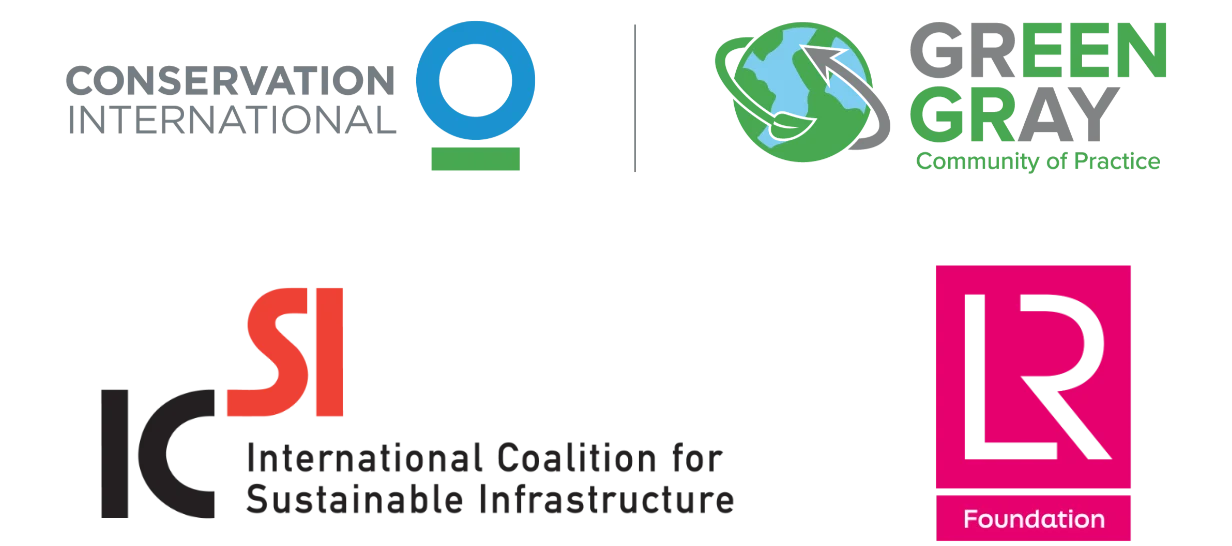
Speakers

Savina Carluccio
Executive Director, International Coalition for Sustainable Infrastructure (ICSI)
Savina is the Executive Director of ICSI and a fervent advocate of the role of civil engineers in tackling our society’s biggest challenges. She is an experienced Civil Engineer and infrastructure practitioner with almost two decades of experience advising government, infrastructure owners and operators, multi-lateral development banks and NGOs to develop and implement inclusive, sustainable and resilient infrastructure that is fit for the future.

Michelle Meaclem
MBTA, Harvard Kennedy School
Michelle is a Civil Engineer at Tonkin + Taylor New Zealand with over 5 years’ experience across civil and stormwater infrastructure design, climate resilience, and infrastructure advisory and planning. She predominantly contributes to projects that enable transportation mode shift (to active modes) and reduce flood hazards. In the advisory sector, she has helped local and central government organisations understand their climate risks, prepare for growth, and manage their infrastructure asset.

Dr Ruth Boumphrey
Chief Executive, Lloyds Register Foundation
Ruth became Chief Executive at Lloyd’s Register Foundation in 2022, however she joined the organisation back in 2014 as Director of Research and Strategic Programmes, where she led major programmes with the Alan Turing Institute on data-centric engineering. Ruth has a well-rooted background in research, development, and regulation, primarily in the Space and Environmental sectors.
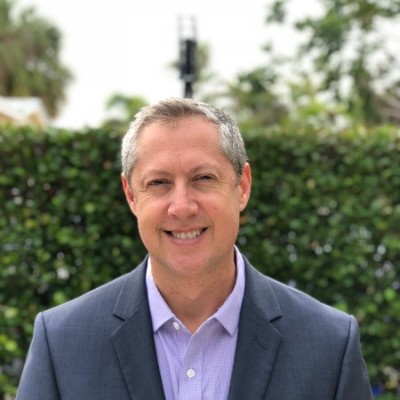
Rod Braun
Global Director, Conservation International
As Global Director at Conservation International (CI), Rod leads the organisation’s initiative on delivering coastal resilience solutions, leading a team of engineers and scientists developing hybrid or green-gray infrastructure solutions to fundamentally transform coastal infrastructure to deliver protection and resilience to some of the world’s most vulnerable people.
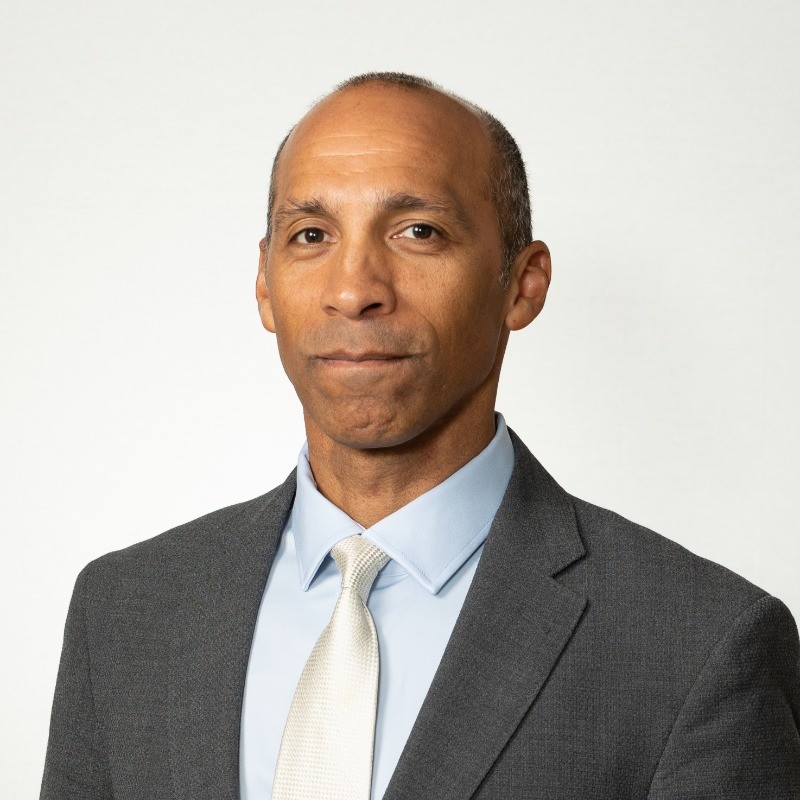
Jonah Smith
Vice President | Global Head of Responsible Business, IBM
Jonah Smith joined IBM in 2023 and is Vice President, Global Head of Responsible Business. In addition to
leading global Responsible Business strategy, goals, reporting, governance and stakeholder engagement,
Jonah’s responsibilities also entail areas such as human rights due diligence and efficacy, and the development
and implementation of environmental social innovation programs such as the IBM Impact Accelerator.
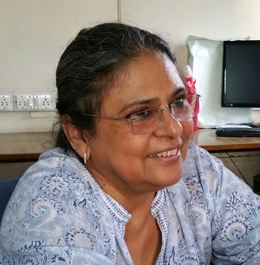
Sheela Patel
Founder and Director, Society for Promotion of Area Resource Centres (SPARC)
Sheela Patel is the director of the Society for the Promotion of Area Resource Centres (SPARC) that has worked in the Alliance with Mahila Milan and the National Slum Dwellers Federation (and Jockin) since 1986. She is one of the founders of SDI and is now a member of the Global Commission on Adaptation.
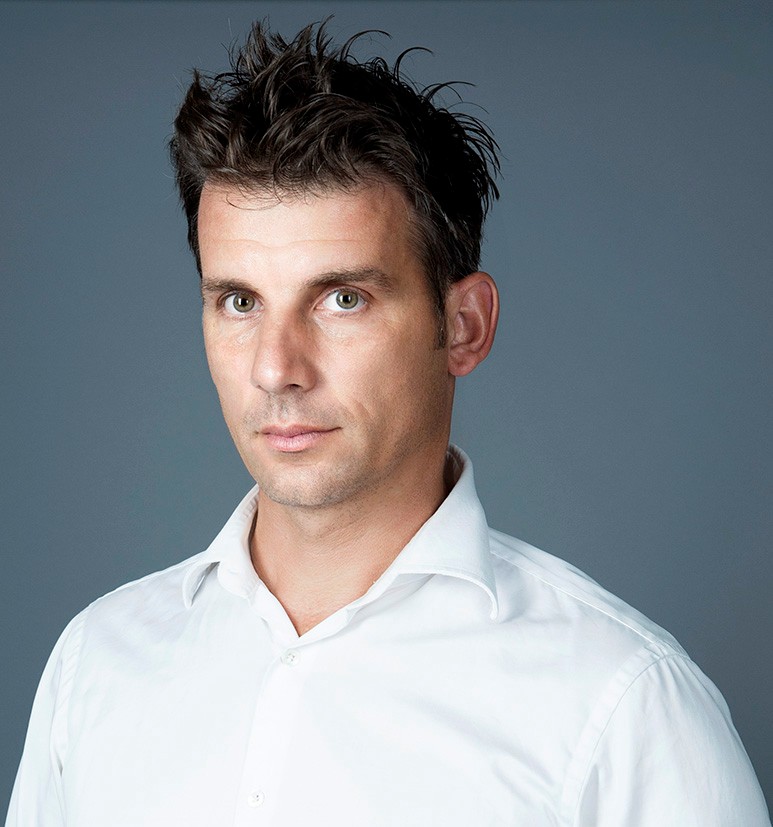
Alexander Mirescu
Head of Extreme Weather for Zurich US
Alexander Mirescu is the Head of Extreme Weather for ZRS U.S. In this role, Alex leads ZRS’ Extreme Weather team to build out risk reduction and resilient engineering solutions by engaging with key sectors, such as real estate, energy, transport and logistics, tourism and leisure, as well as cities and local governments. Mirescu, based in New York, brings nearly 20 years of global experience in sustainability, climate resilience and public policy to his new role at Zurich.
Networking lunch
Rewriting the script: Shark tank for investible NAPs
Session Overview
Despite clear evidence that every USD 1 invested in climate adaptation yields USD 2–10 in benefits, less than 5% of global climate finance goes to adaptation, and in low-income countries, fewer than 10% of disaster losses are insured. The resulting global resilience deficit leaves frontline communities, supply chains, and national economies dangerously exposed.
National Adaptation Plans (NAPs) play a crucial role in coordinating and prioritising where finance should flow. They have the potential to serve as detailed blueprints for channeling resources towards climate-resilient development, outlining national priorities, sector-specific strategies, policies, incentives, and project pipelines. However, many NAPs remain too high-level, not providing the granular information that is needed to attract investments.
Building on insights from London Climate Action Week and looking ahead to COP30 in Belém, this session explores how governments, financiers, and practitioners can better align capabilities to make NAPs genuinely investible. The discussion will spotlight how inclusive financial instruments and risk-analytics tools must be woven into NAPs to ensure they serve the most vulnerable, build systemic resilience, and deliver confidence to investors. The aim is to align incentives, connect innovations, and co-create financial systems that are inclusive, resilient, and fit for a volatile future.
Session Hosts
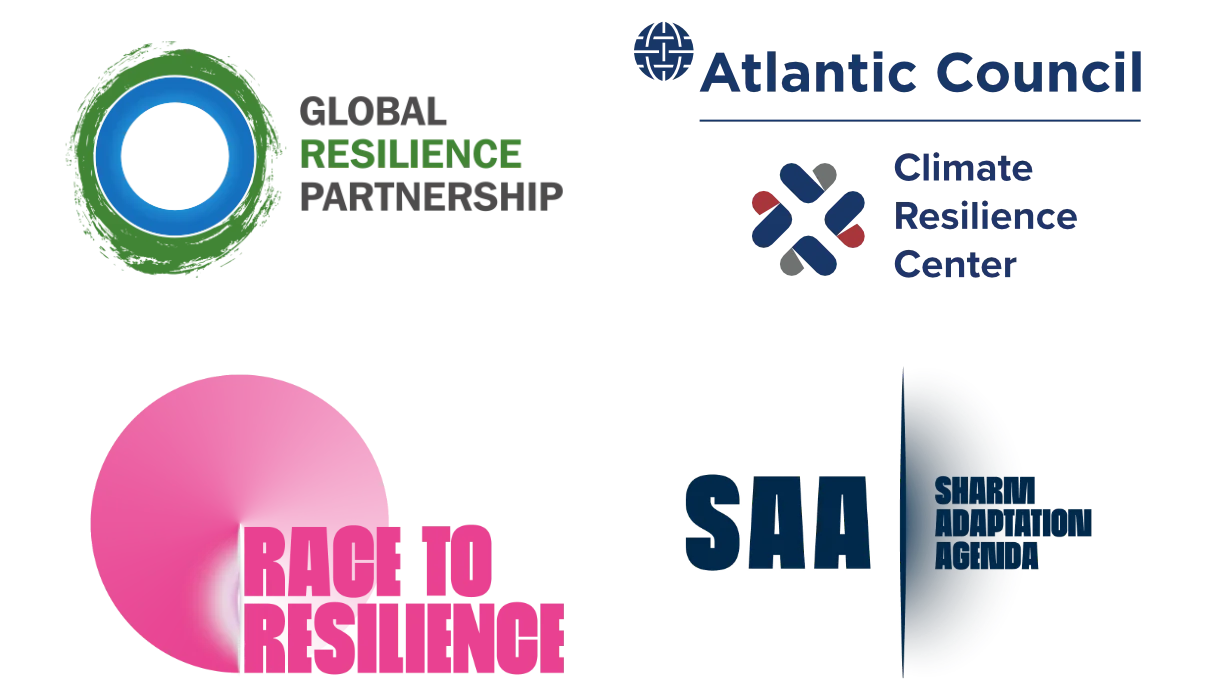
Speakers
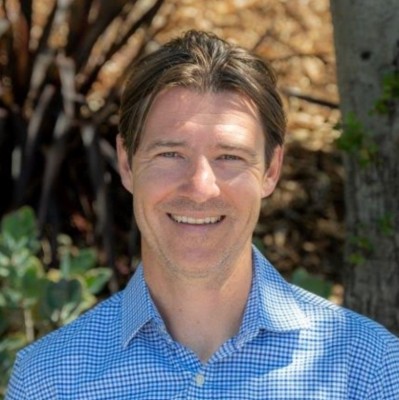
David Nicholson
Chief Climate Officer, Mercy Corp
In 2022, David Nicholson was named the first-ever Chief Climate Officer at Mercy Corps. In this role, he leads the development and implementation of strategic initiatives to integrate bold climate action into all facets of Mercy Corps operations and programming. Over his 12 years at Mercy Corps, David has been instrumental in the organisation’s transformation into a sustainability leader.
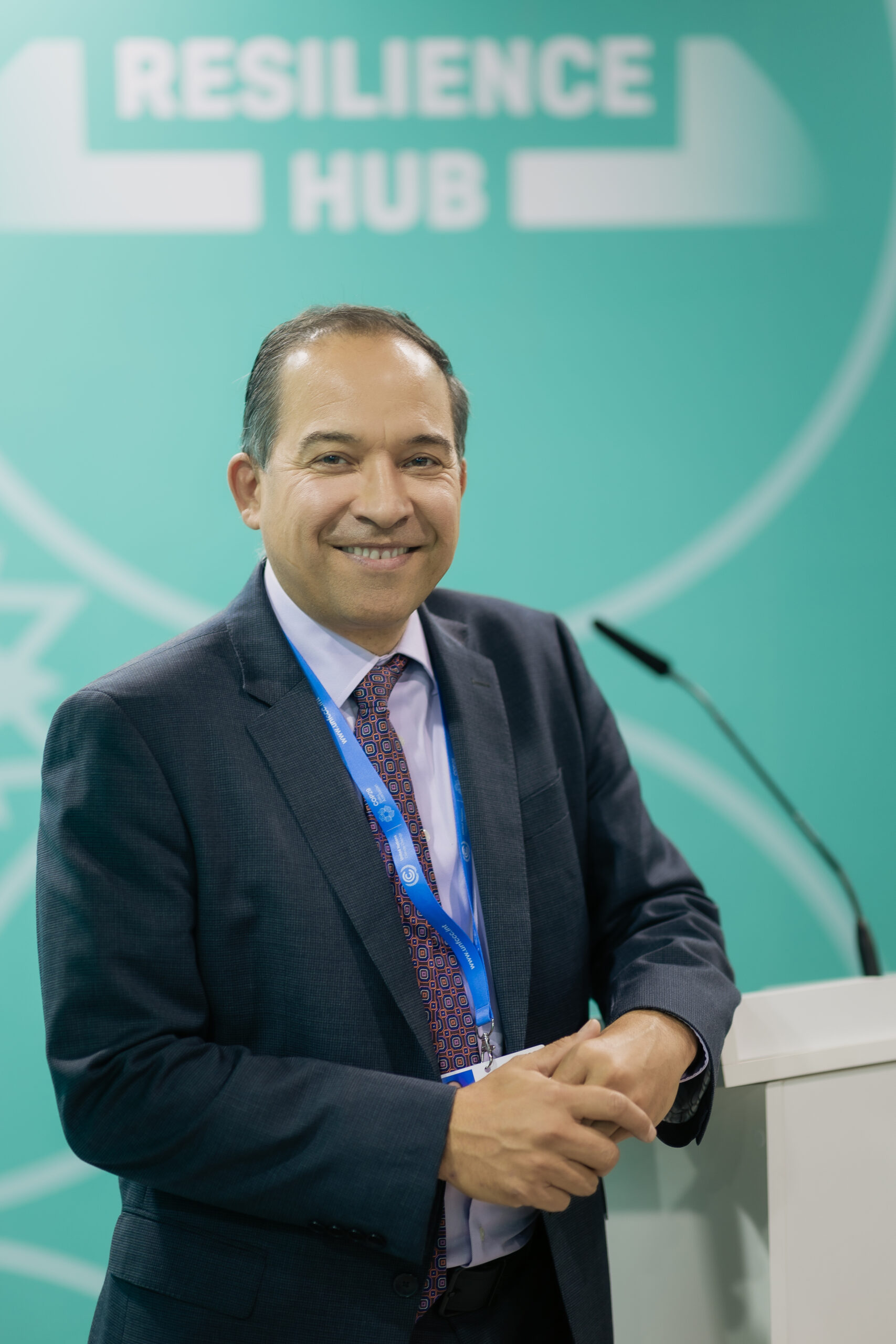
Jorge Gastelemundi
Senior Director, Atlantic Council Climate Resilience Center
Jorge Gastelumendi is the senior director of the Atlantic Council’s Climate Resilience Center (formerly Arsht-Rock). In this role, he leads the center, overseeing the center’s three strategic pillars: extreme heat resilience, adaptation policy and finance, and climate games and technology. As a recognized climate and environmental policy and finance leader, Gastelumendi brings over twenty-five years of climate and policy experience.
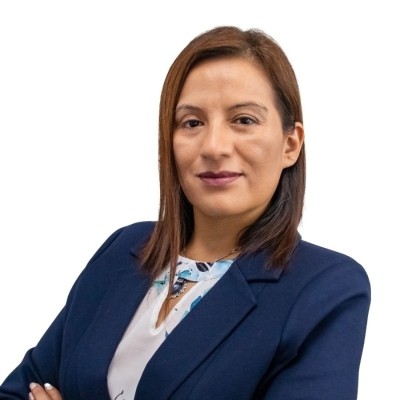
Berioska Quispe
Director of Climate Change, Government of Peru Ministry of Environment
Berioska Quispe has extensive professional experience in climate change and forest management, with ten years of work at the Ministry of the Environment. Her experience includes serving as Director of Greenhouse Gas Mitigation and currently, as General Director of Climate Change and Desertification. Additionally, she has extensive experience focused on greenhouse gas mitigation, REDD+ implementation, policy development for carbon neutrality, and experience in Land Use, Land-Use Change and Forestry, and GHG inventories.
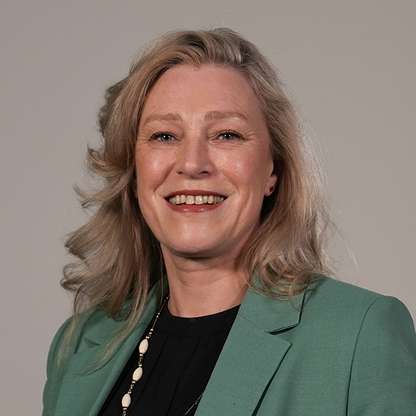
Gillian Martin
Cabinet Secretary for Climate Action and Energy, Government of Scotland
Gillian Martin was appointed as Cabinet Secretary for Climate Action and Energy in June 2025. Ms Martin was elected as a Member of the Scottish Parliament to represent Aberdeenshire East in 2016. She was appointed as Minister for Energy and the Environment in March 2023, and Minister for Energy, Just Transition and Fair Work in February 2024. In May 2024 she was appointed as Minister for Climate Action. Prior to her role as MSP, She designed safety courses for the energy industry and was the manager of an emergency media response team for companies operating in the North Sea for 10 years.

Vedika Bhandarkar
President & COO, Water.org
As President and Chief Operating Officer, Vedika is responsible for the oversight of Water.org’s global organization, ensuring our overall effectiveness and comprehensive achievement of strategic, financial, and annual operational goals. She works closely with the CEO, the executive team, the Board of Directions, and the President of WaterEquity, and a broad range of other stakeholders to champion the vision of Water.org.
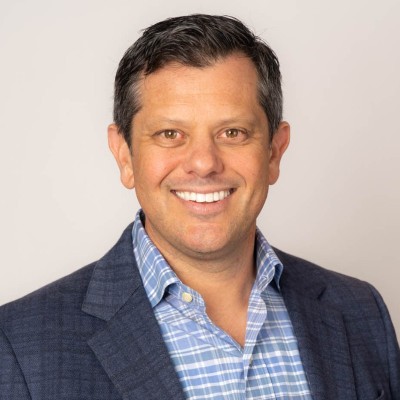
Christopher Adamo
Head of Global Sustainability Impact & B Corp, Danone
Chris Adamo is head of Global Sustainability Impact & B Corp, assisting Danone to create social and environmental impact throughout its business as a certified B Corp. Chris helps Danone build sustainability strategies and policies to implement its Danone Impact Journey. Chris also leads the development of partnerships to help accelerate and scale progress across priority topics such as climate change and regenerative agriculture.

Anuja Jaitly
Global Business Development, Blue Marble
Anuja Jaitly is currently engaged in Global Business Development at Blue Marble, contributing to the expansion and impact of microinsurance services worldwide. As the Founder and Chair of Umby, a platform dedicated to fostering entrepreneurial initiatives, Anuja has played a pivotal role in promoting inclusive business practices since 2015. Prior to current roles, Anuja served as a Consultant for the Grameen Foundation, focusing on innovative strategies that support poverty alleviation and economic development.
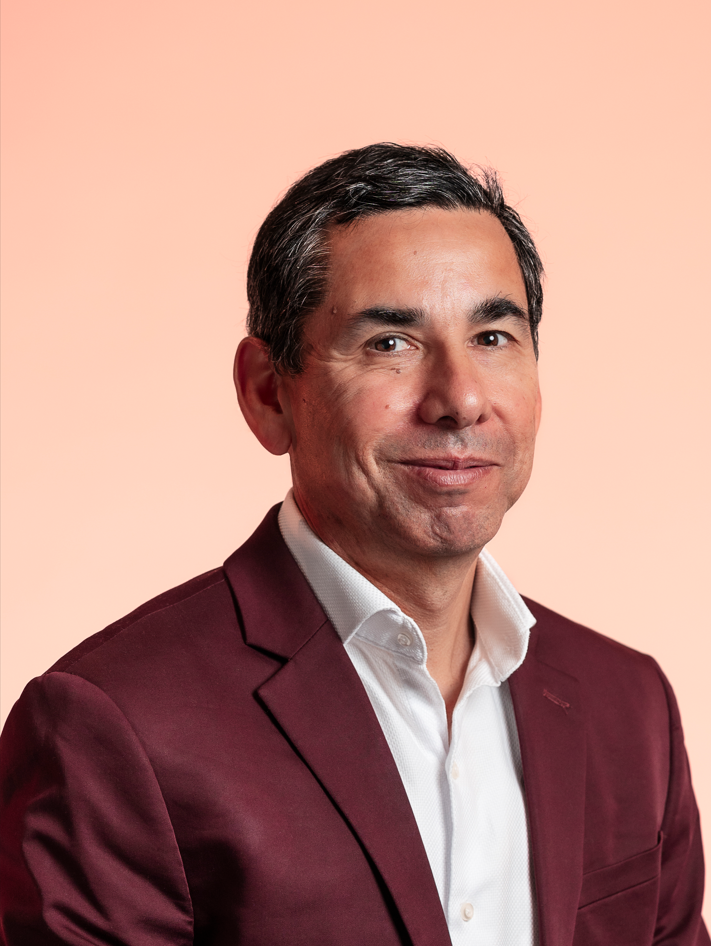
Dario Soto Abril
CEO, Trafigura
Dario leads the Trafigura Foundation’s Management Team and is responsible for the implementation of its global strategy and relations with key partners. By building strong coalitions and supporting innovations with large-scale impacts, Dario maximises the impact of the Foundation’s work to help people and nature prosper in the face of climate change. Dario has more than 25 years of experience leading international organisations focused on social and economic inclusion, climate action and public-private partnerships.

Wim Vandenhoeck
Co-Head of Emerging Markets Debt & Senior Portfolio Manager, Invesco
Wim Vandenhoeck is Co-Head of Emerging Markets Debt and a Senior Portfolio Manager at Invesco. In this role, he is responsible for co-leading the global team of emerging market specialists across hard and local currency investments in sovereigns and corporates. Additionally, Mr. Vandenhoeck is Co-Portfolio Manager on the Emerging Markets Local Bond, Emerging Market Flexible Bond, Emerging Market Bond, and Emerging Market Corporate Bond strategies.

Peter Zetterli
Green Lead Senior Financial Sector Specialist, CGAP
Peter Zetterli is CGAP’s Green Lead, spearheading the organization’s work on the intersection of financial inclusion and environmental concerns. This critical body of work focuses on using inclusive finance to support sustainability by developing more environmentally relevant solutions for underserved clients and the financial institutions that serve them. As extreme weather and natural disasters increase the risks and costs of serving people living in poverty, CGAP’s aim is to ensure that progress on financial inclusion isn’t lost.

Dan Ioschpe
COP 30 Climate High-Level Champion, Brazil
Dan Ioschpe is the Chairman of the Board of Directors of Ioschpe-Maxion and a member of the boards of WEG, Marcopolo, and Embraer. He also serves as one of the Vice Presidents of FIESP (Federação das Indústrias do Estado de São Paulo) and IEDI and is a Board Member of Sindipeças.
In 2024, he chaired B20 Brasil. Dan he holds a degree in Social Communication from UFRGS (Universidade Federal do Rio Grande do Sul), a postgraduate degree in Marketing from ESPM-SP (Escola Superior de Propaganda e Marketing), and an MBA from the Tuck School of Business at Dartmouth College, USA.
Break mingle over tea and coffee
Tab Content
From risk to remedy: Making health central to adaptation and COP30
Session Overview
As climate shocks intensify, the health impacts are becoming impossible to ignore. From heat stress and air pollution to maternal mortality in fragile contexts, the climate crisis is reshaping the global burden of disease and straining health systems already stretched thin. Yet health remains under-represented in climate negotiations, often siloed from adaptation, resilience, and finance discussions.
This session brings together leaders from global health, research, policy, employers, and storytelling to highlight how to elevate health as both a frontline impact and a strategic entry point for stronger climate action. Anchored in the Belem Health Action Plan, the Global Goal on Adaptation, and the COP30 Presidency’s call to protect lives and livelihoods, the session will explore how health can become a unifying force, aligning equity, policy, and investment for a just, resilient future.
Session Hosts
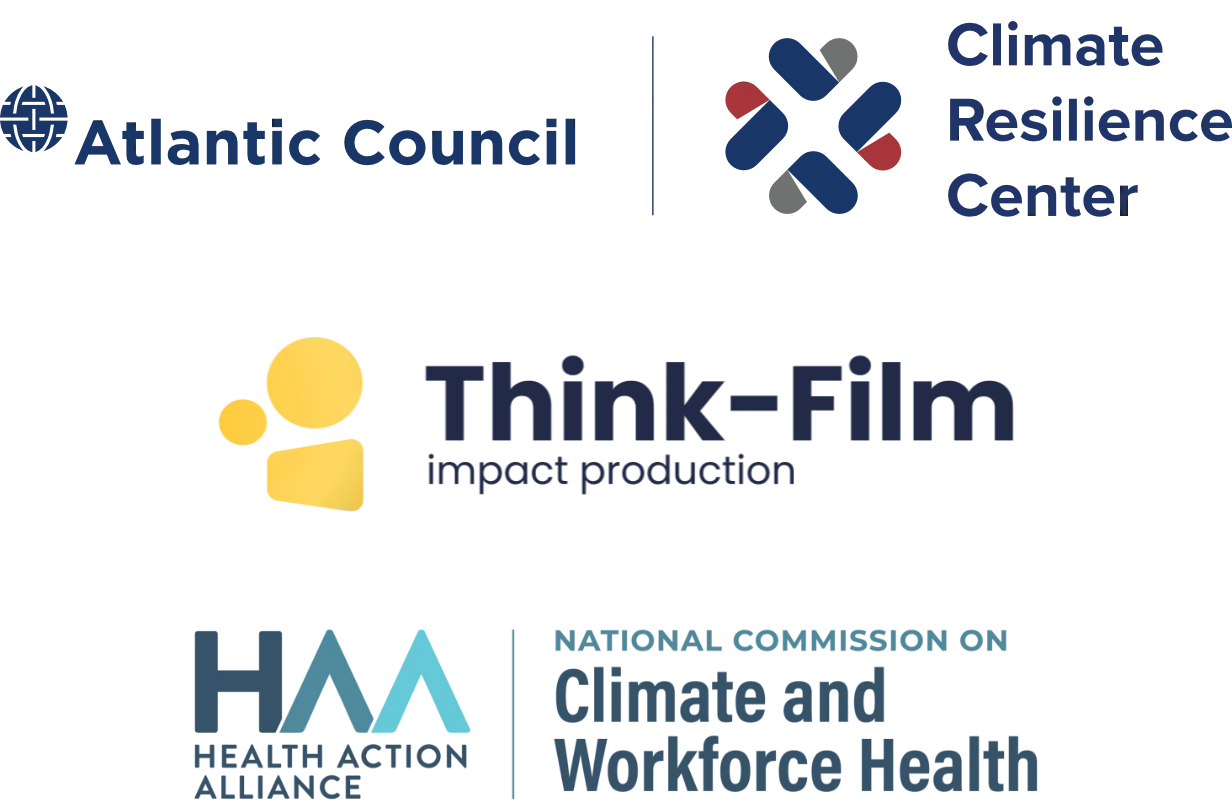
Speakers

David Leathers
Program Director, National Commission on Climate and Workforce Health
David Leathers is a sustainability and impact leader focused on accelerating solutions through business action. He brings deep experience in program management, sustainability, and stakeholder engagement to his work at Meteorite, where he focuses on climate and workforce health. Most recently at B Lab, the organization behind the B Corp movement, David led strategic initiatives to strengthen sustainability standards and impact measurement for almost 10,000 Certified B Corporations worldwide.
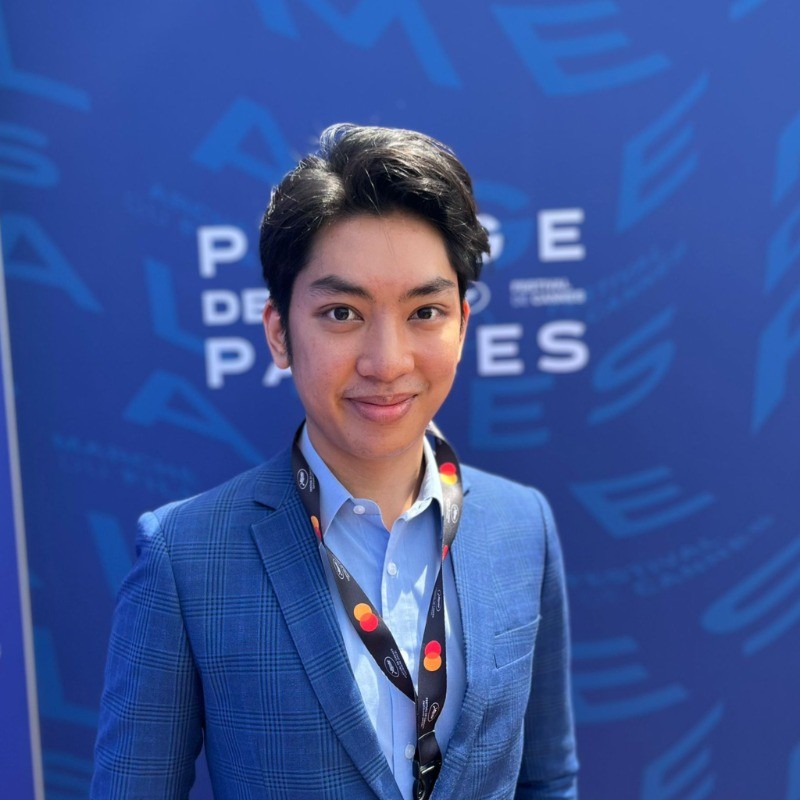
Yik Kei Leung
Senior Project Officer, Think-Film Impact Production
Yik Kei Leung is an experienced professional currently serving as an Impact Strategist and Impact Fellow at Think-Film Impact Production since February 2021. Prior to this role, Yik Kei held leadership positions at KCLSU, including Co-President of the Geography Society and Social Outreach Officer from May 2019 to June 2021. Yik Kei gained experience as the Mayor’s Entrepreneur Intern with the Mayor of London from November 2019 to May 2020, and served as a Student Leader at United World Schools from September 2017 to May 2018.

Madeleine Thomson
Head of Climate Impacts, Wellcome
Madeleine has over 25 years of research experience focused on large-scale, climate-sensitive, health interventions in Low- and Middle-income Countries.Prior to joining Wellcome, Madeleine worked as Senior Research Scientist at The International Research Institute for Climate and Society, Columbia University, where she directed the World Health Organization Collaborating Centre on ‘Malaria Early Warning Systems and other Climate Sensitive Diseases’. She was also a Senior Research Scholar at Columbia’s Mailman School of Public Health.

Emma Court
Reporter and Editor, Bloomberg
Emma Court serves as Bloomberg’s climate and health reporter and editor. She has been with Bloomberg since October 2019, anchoring its COVID-19 coverage with a focus on testing failures, efforts to reopen, and emerging hotspots throughout the U.S. Previously, she was a healthcare reporter with Business Insider and MarketWatch.She holds a bachelor’s degree from Cornell University and most recently completed an MBA at Columbia University.
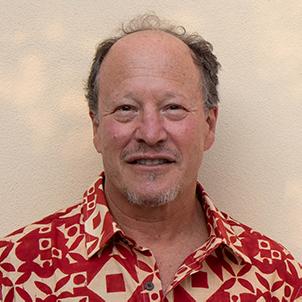
Josh Karliner
Director of Global Partnerships, Health Care Without Harm
Josh Karliner works with Health Care Without Harm to build a zero emissions, climate resilient, and more equitable health care sector that advocates for a healthy climate and a just transition. He has been with Health Care Without Harm since 2005, establishing and co-developing a series of initiatives including the organization’s Global Green and Healthy Hospitals Network.
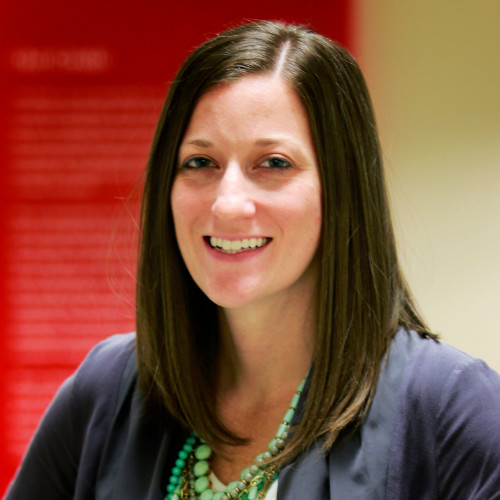
Cara Cook
Global Climate and Health Alliance (GCHA) Board rep and Deputy Director for the Alliance of Nurses for Healthy Environments
Cara Cook, MS, RN, AHN-BC (she, her) is the Deputy Director for the Alliance of Nurses for Healthy Environments. Her work focuses on elevating environmental health as a national priority by engaging nursing organizations and individual nurses in environmental health advocacy, education, and practice change. Cara has experience in critical care and public health nursing. She holds a Master’s in Community/Public Health Nursing through the University of Maryland.

Natalia Linou
Deputy Director and Advisor on Determinants of Health, UN Development Programme
Natalia Linou is a social epidemiologist and the Deputy Director of UNDP’s HIV and Health Team. She has worked in global development and health equity for almost two decades, including on the environmental determinants of health. Prior to her current role, she served as Executive Director of the FXB Center for Health and Human Rights at Harvard University and continues to teach graduate level courses on climate change and health justice at Harvard.

Isra Chaker
CEO, Every Pregnancy
Isra leads Every Pregnancy as Chief Executive Officer, spearheading its vision to make every pregnancy safe by mobilising faith-inspired philanthropy, forging global partnerships, and driving high-impact campaigns like For Mama to save the lives of mothers and babies in the world’s most vulnerable communities.
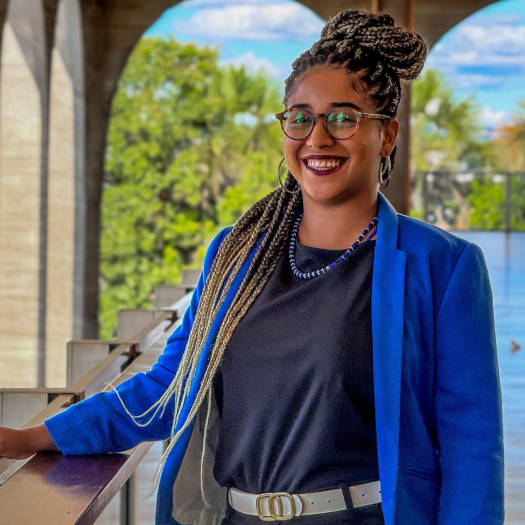
Marcele Oliveira
COP30 Youth Climate Champion
Marcele Oliveira is the Presidency Youth Climate Champion of COP30 and is leading the mobilization of children, teenagers and youth in the Global Mutirão against Climate Change. Director of Perifalab, she is a cultural producer and has been working since 2019 to fight environmental racism in Realengo, in Rio’s West Zone. Founder of Coalizão o Clima é de Mudança, she was part of the Realengo 2030 Agenda and the Youth Climate Negotiators program.
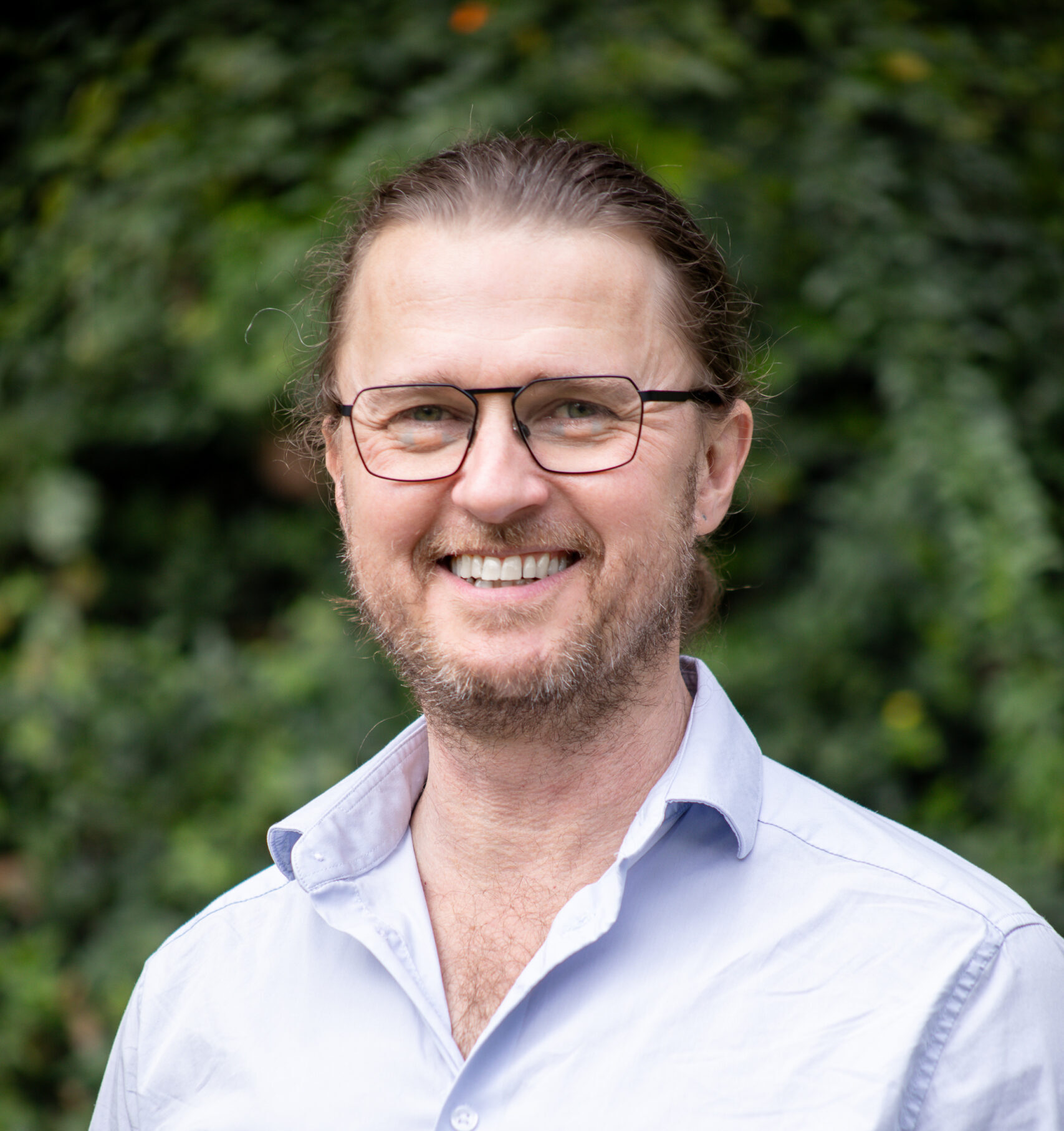
Jesper Hornberg
CEO, Global Resilience Partnership
Jesper is the Chief Executive Officer at the Global Resilience Partnership. For the past ten years he has led GRP’s Innovation and Scaling efforts, as well as the GRP Incubator. His focus is on change management and creative disruption. He manages and coordinates the GRP team, and provides overall oversight and leadership for GRP.

Marcia Toledo
Director of Adaptation and Resilience, Climate Champions
Marcia Toledo leads the Adaptation and Resilience team, overseeing the integrated implementation of the Race to Resilience campaign and the Sharm el-Sheikh Adaptation Agenda—the two key adaptation mobilization mechanisms of the UN Climate High-Level Champions under the Marrakech Partnership for Global Climate Action. Her work focuses on catalyzing action, mobilizing finance, and strengthening the policy ambition loop while fostering radical collaboration among businesses, investors, cities, regions, civil society, and local communities through a people-centered approach that champions diversity, equity, and inclusion.

